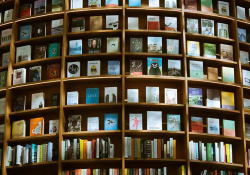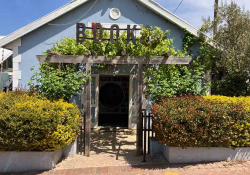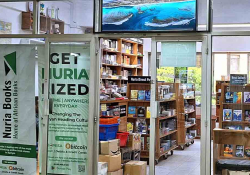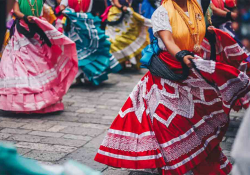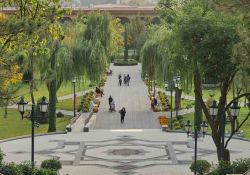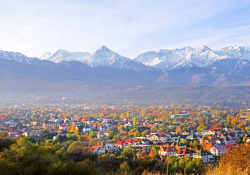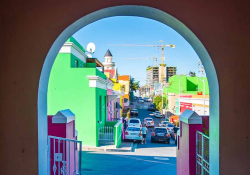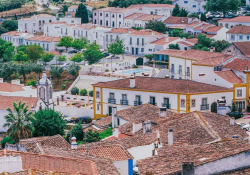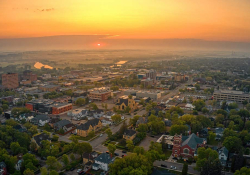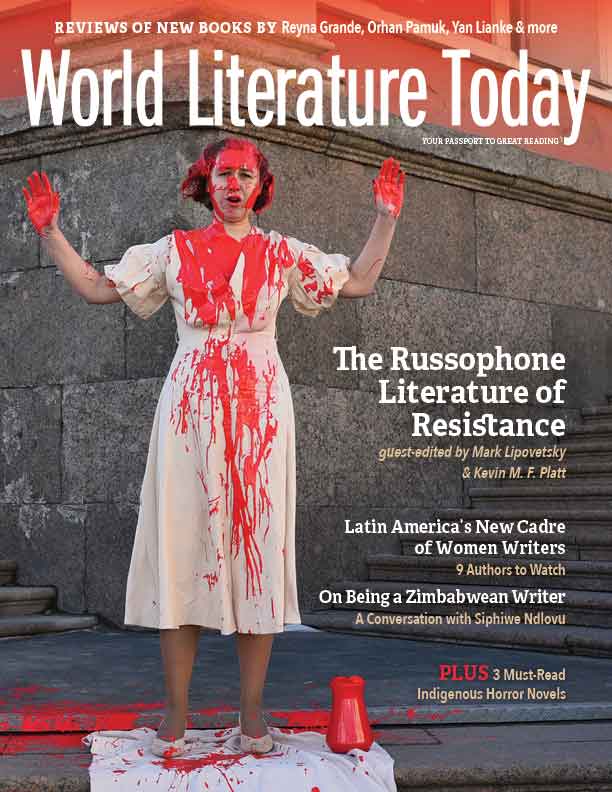The Bookstores of the US–Mexico Border
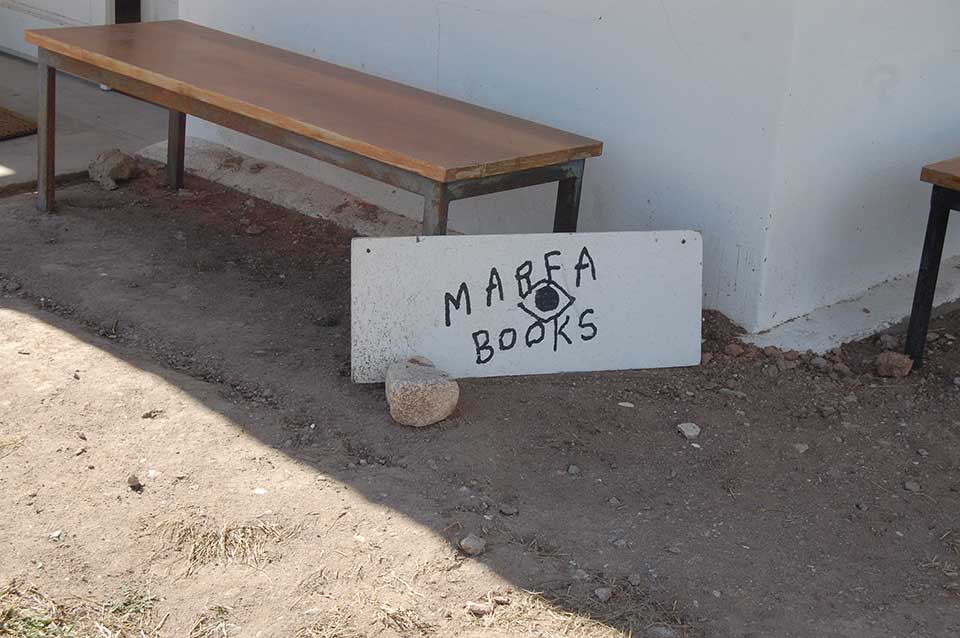
IT ISN'T EASY to get to Redford, Texas. There’s only one road in or out, a two-lane highway that runs along the US–Mexico border from Presidio to Lajitas before it veers north and ends in Terlingua.
You probably haven’t heard of these communities. That’s because, for most people, there honestly aren’t a lot of reasons to visit. As of 2020, Redford is a small community of twenty-three people, down from ninety-three people in 2010. There is no store, no gas station, no school, no nothing. Redford “thrived” in the past only because border crossings by raft across the Rio Grande river were unregulated, so the American town and the Mexican town across the river were like one community. Like many of these small border villages, it has essentially died in the wake of policies that stopped these historically engrained—though technically illegal and unsanctioned—back-and-forth travels and cross-border trade. American and Mexican communities required one intertwined economy to provide key items—gasoline or groceries, for example—and now that they are cut off from each other, each community is choking from its lack of access to essentials.
Maybe books aren’t “essential” like gas or groceries, but they are the lifeblood of the mind. And I wanted to visit Redford because I had heard about Lucia Madrid, a woman of indomitable energy whose lending library, launched in the Madrid General Store in 1979, grew to include fifteen thousand books and operated until her death in 2006.
Maybe books aren’t “essential” like gas or groceries, but they are the lifeblood of the mind.
In Redford’s crumbling adobes and in the deteriorating storefront that has long since been shuttered and abandoned, I found little left of her dedication to the love of books and ideas. But I did find her spirit in the bookstores scattered along the 1,951-mile US–Mexico border, many of them small and curated by booksellers with singular tastes but catering to their unique communities. Because all border communities, just like Redford, deal with isolation: whether physical isolation since they are difficult to reach, or political and social isolation because they aren’t seen as financial or cultural epicenters.
Rather than viewing their isolation as a problem, booksellers along the border see this as an opportunity. “There are tangible and intangible borders in the world, and books can bridge those gaps,” says Sarah Cuadra, owner of the Storybook Garden in Weslaco, Texas. “There will always be conflict, but the more we seek to understand, the better.”
“The beauty of being isolated is that regardless of our political or social beliefs, we all need each other,” says Julie Green, book buyer for Front Street Books in Alpine, Texas.
Recently, my dad and I visited as many of these bookstores as possible to find out how people in each of these places are making the sacrifice to ensure books are accessible in peripheral places long forgotten by the so-called “center.”
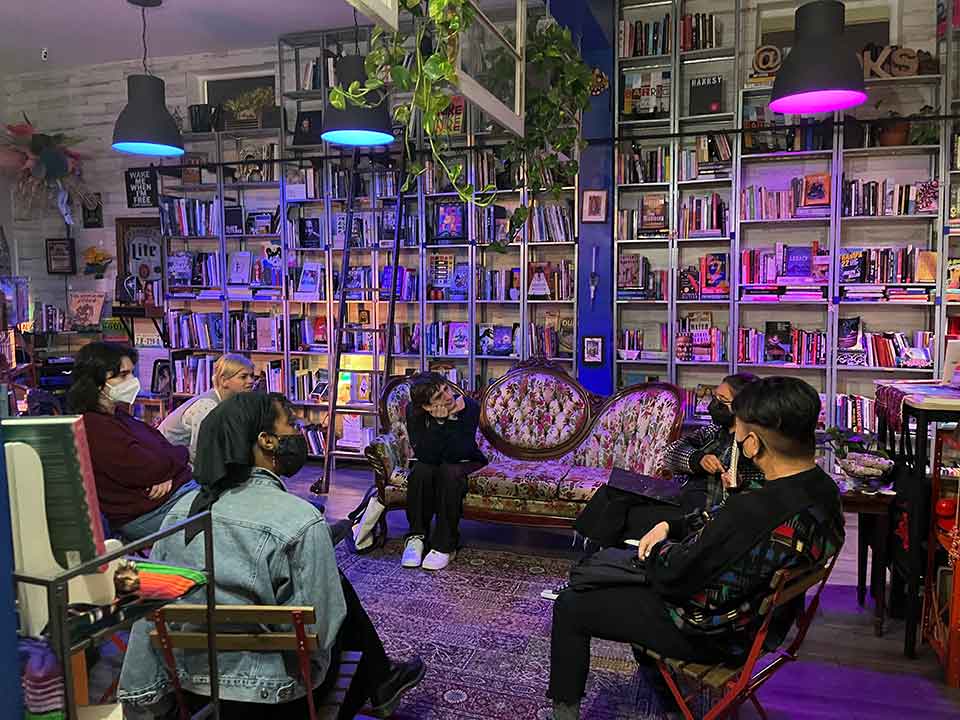
Photo by Jesi Gutierrez
Libélula
San Diego, California
Jesi Gutierrez, co-owner and creative director, describes Libélula’s collection as books that represent the “Chicanx experience, books in Spanish, Spanglish, as well as stories of migration, and of the living on severed lands, from both sides of the line. We are also happy to carry as many books as we can get on the local movement and area we are located in, Barrio Logan, which is one of Mexican American, Indigenous, and Chicanx activism.” As a queer-owned bookstore, they also focus on books that represent the bipoc queerfolk experience. Gutierrez suggests that bookstores are responsible to their communities. As such, Libélula offers “rich connections” and a “safe place for some who may not have it otherwise.”
Bisbee Books and Music
Bisbee, Arizona
This small bookstore carries general books and a wide selection of titles related to Bisbee’s mining past, Arizona history, the border, and, surprisingly, the paranormal. “It is theorized that the mining and the minerals and crystals in the area make it a vortex of paranormal activity,” says Craig Harzinski, owner of the bookstore. “We often get people in the store who can see others. Regrettably, I am not one so gifted.” He went on to explain that Bisbee was the stop between the coasts back in the day. “When the mines closed in the early ’70s,” he says, “property values plummeted and the ‘hippies’ moved in, bringing their music and art with them. The city has retained much of that legacy.” The town remains a haven for musicians and artists, and the bookstore caters to that crowd as well as to tourists and locals.
Bowlin’s Mesilla Book Center
Old Mesilla, New Mexico
Paul Blevins described the store’s trajectory as started by his mother-in-law, a white woman who grew up in the Four Corners area, speaking Navajo. His wife, Cheryl, the current owner, grew up in the bookstore’s back rooms (where the family lived) and absorbed her mother’s tastes and interests. The collection is strong in books related to the Southwest, New Mexico, and Native American interests.
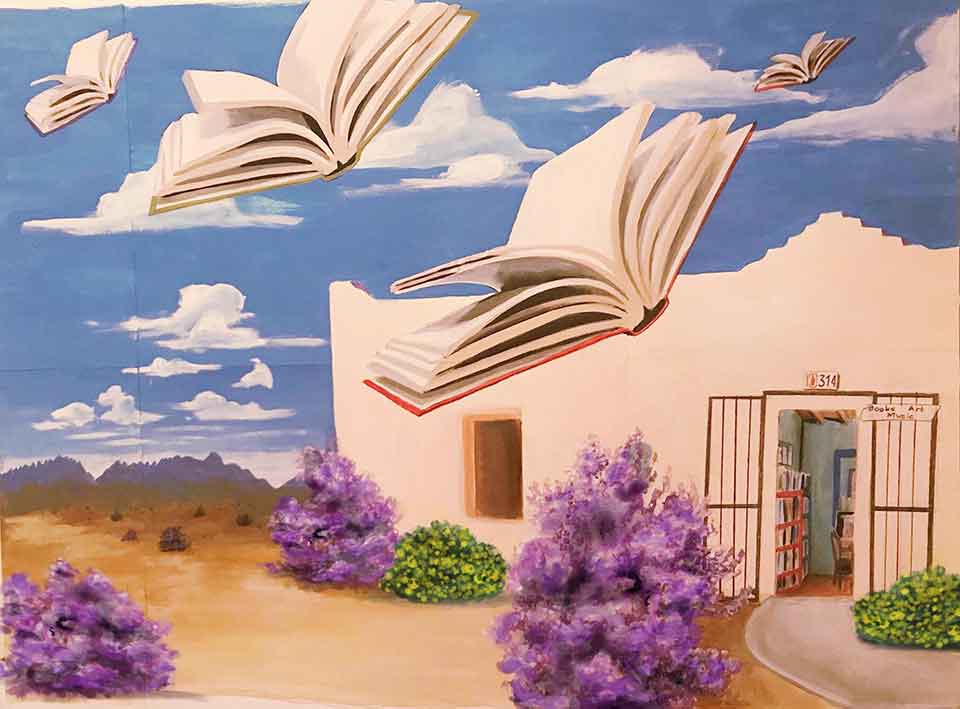
Casa Camino Real Bookstore and Art Gallery
Las Cruces, New Mexico
“We represent the borderland in every possible way,” Denise Chávez, owner of Casa Camino Real Bookstore and Art Gallery in Las Cruces, New Mexico, says. Her father grew up in the neighborhood where her bookstore is now located. “[Back then] it looked like a shantytown in the deep South. We still have the poverty, but now gentrification is happening.” Chávez’s bookstore grew out of her two decades as director of the Border Book Festival. She stocks an incredible collection of books related to the border and Chicano writers. But she also went to antiquarian school and now acquires and sells an array of ancient books and first editions of important books. The bookstore is committed to the community and literacy is tangible ways. In the last four years, for example, Chávez says they’ve given away forty thousand books for refugees via Libros Para El Viaje (Books for the Journey).
Literarity Book Shop
El Paso, Texas
Literarity’s collection reveals a strong commitment to local authors, both the Southwest and the border generally, but, says owner Bill Clark, he is also “strongly committed to presses like Deep Vellum, which is bringing important international voices to English-language readers through its translations.” Like all booksellers, they stock books they love and are committed to shining a light on good authors everywhere, with a particular emphasis on regional writers. “Our visibility has enabled us to step up and help our community in times of need,” says Clark. “We partnered with MSNBC’s Rachel Maddow to raise money for victims of the mass shooting in El Paso, and we’ve pitched in to help with programs designed to support migrants and Covid patients.”
Marfa Book Company
Marfa, Texas
The Marfa Book Company caters to the Marfa community by carrying books by artists and writers who have lived in Marfa or done an artist’s residency there. As such, it’s a peculiarly small bookstore with an extremely eclectic collection.
Front Street Books
Alpine, Texas
A bookstore that offers both general books that anybody, anywhere might want but also a very strong regional-interest section, particularly of the Big Bend Park region and Chihuahuan Desert but also of the border. “I try to find books that will show the border in a complex light,” says Julie Green, book buyer for thirty years. “Books that don’t look at it as a single problem, books that consider all the different sides . . . books I disagree with but nothing inflammatory. I never want someone to come in here and say, ‘Uh, they have nothing I want.’ That’s crushing.”
J’aime Les Livres
McAllen, Texas
Owner Martha Medina originally opened the store as a place where her kids could bring friends to hang out. She handpicks all the “gently used” books she sells. Once a month, she has a sale in the front where people pay five dollars to fill a bag of books. Many local parents will come by for the sale or will take a book from her Little Library in front of the store, but they will never come inside the store. She sees her role as a community service. “I wanted a place where people could afford to buy books,” she says.
The Storybook Garden
Weslaco, Texas
Though a children’s bookstore, the Storybook Garden’s mission is for the entire community. “We have one of the highest adult illiteracy rates in Texas, possibly the US,” says owner Sarah Cuadra. “But if children see their parents reading, they will become readers too. We will keep trying to connect readers and authors, and readers and books. I try to create a space where kids [and adults] can journey anywhere in the world.”

